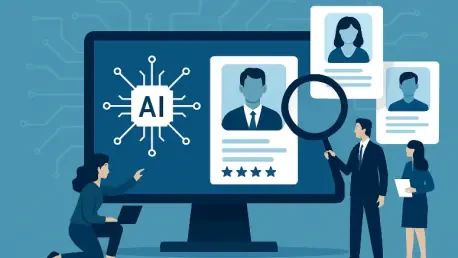California’s regulatory landscape is witnessing a transformative shift with the introduction of the “No Robo Bosses Act,” aimed at governing artificial intelligence (AI) in work environments. As industries adopt AI tools to streamline hiring and management, challenges related to fairness and ethics arise. This analysis delves into emerging trends in AI-driven employment, examines their implications on the workforce, and anticipates how legislative measures might shape future practices.
The Evolution of AI in Employment
The transformation of recruitment practices through AI reflects several significant trends. Over recent years, businesses across sectors have increasingly adopted AI systems for streamlining hiring processes, integrating technologies to assess candidates’ suitability based on large-scale data patterns. This shift has improved efficiencies but sparked concerns over inherent biases in algorithmic decision-making, affecting diversity in hiring.
Simultaneously, the growth of AI in workforce supervision reflects another crucial trend: businesses utilizing technologies to monitor employee productivity and engagement. This trend has simultaneously ignited debates over privacy, as these systems often scrutinize employee interactions and communications, assessing job satisfaction and potential risks.
Legislative Interventions to Monitor AI Use
In response to the widespread adoption of AI-driven employment practices, California’s “No Robo Bosses Act” emerges as a crucial legislative measure. This legislation seeks to introduce stringent controls over AI usage in employment decisions, highlighting a shift towards mandating human oversight over automated systems. By advocating human involvement in crucial decisions like hiring, promotions, and disciplinary actions, the Act addresses ethical concerns regarding AI’s potential to unfairly influence workers’ careers.
The legislative framework further aims to bar AI technologies that purport to predict behavior, emphasizing the importance of safeguarding privacy. This regulatory approach underscores California’s commitment to balancing technological innovation with ethical employment practices.
Industry Reactions and Implications for Businesses
The proposed regulations have elicited varied responses from industry stakeholders. While some sectors view the Act as necessary for mitigating AI’s adverse effects, others argue that it may impede business efficiency. Concerns stem from compliance costs and the possible disruption to AI-enhanced decision-making processes, leading businesses to voice apprehensions about operational challenges.
This uncertainty reflects broader debates between innovation and regulations, where industries must navigate achieving regulatory compliance while leveraging AI’s potential. The responses underscore a broader industry consensus urging a balanced approach toward incorporating AI, respecting both technological advancements and ethical standards.
Future Outlook and Strategic Implications
Reflecting on the dynamics of AI deployment in employment, the emerging legislative frameworks spotlight the dual challenge of fostering innovation while ensuring fair labor practices. The trajectory of this transformation suggests that AI will increasingly complement human decision-making rather than replacing it, paving the way for augmented intelligence applications that harmonize technology with human oversight.
Strategically, businesses should pivot toward enhancing transparency in AI deployment, prioritizing rigorous audits to address bias in decision-making processes. Training programs focusing on human-AI collaborations could empower workforces to harness AI benefits ethically. As AI integration continues, companies should remain vigilant in adapting to evolving legislative mandates, ensuring their practices align with emerging regulatory standards.
Reflections on Industry Movement and Next Steps
The enactment of California’s “No Robo Bosses Act” illustrates a growing need to tackle AI’s ethical and operational challenges in the employment sector. By regulating AI’s involvement in critical workplace decisions, the Act emphasizes prioritizing human judgment, providing a framework for maintaining equity and accountability.
Concluding insights indicate a path forward: businesses seeking long-term AI integration must now embrace transparency, actively address potential biases, and routinely evaluate regulatory compliance. Navigating the ongoing dialogue between innovation and regulation requires businesses to maintain agility, ensuring labor rights are upheld alongside technological advancements.









